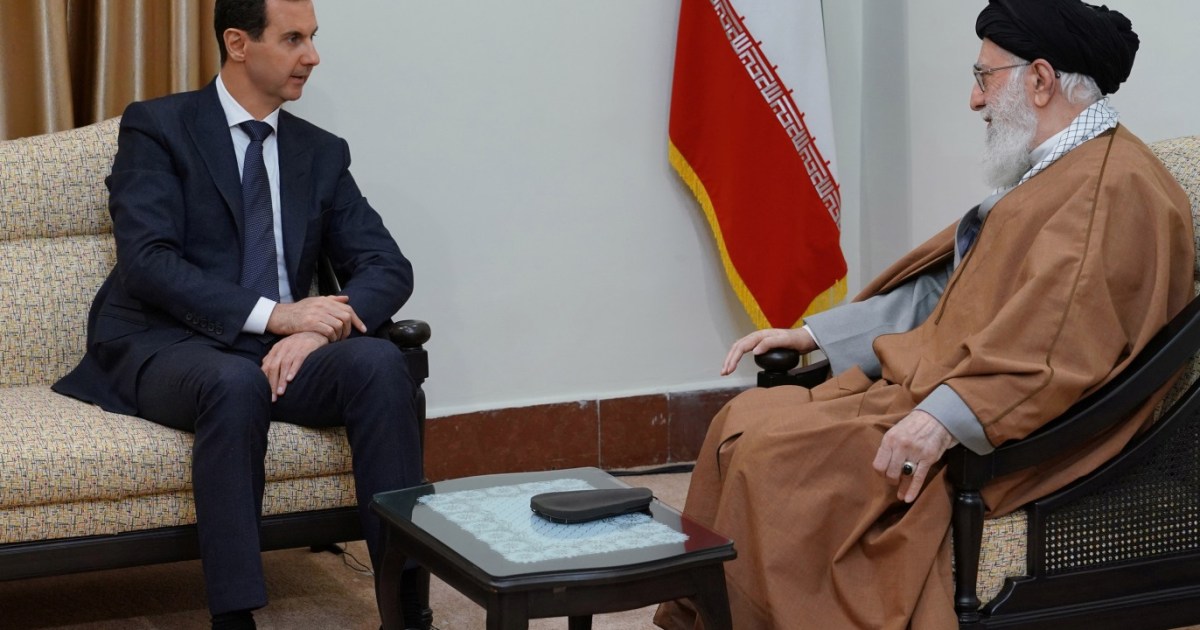The American Foreign Affairs magazine said that the incoming administration of President-elect Joe Biden should realize that Iran is not ready to lose its influence in Syria easily, so it must adopt a realistic policy that helps it reduce risks and reduce losses.
The magazine believes - in a report by researchers Elizabeth Dent and Arian Tabatabai - that the administration of outgoing President Donald Trump has not succeeded in dealing with Iran in the best way on the Syrian arena, which poses many challenges for the next administration.
Last week, Iraqi officials announced that a commander in the Iranian Revolutionary Guard had been killed in an air strike while entering Syria from Iraq on November 29, and that news came a few days after the assassination of Iranian nuclear scientist Mohsen Fakhrizadeh near Tehran.
Although Israel remained silent, its intelligence services were widely accused of being behind the two operations.
However, Iranian officials, who were quick to accuse Israel of assassinating Fakhrizadeh and promising revenge, refused to disclose any information about the attack on Iranian Revolutionary Guard forces near the Iraqi-Syrian border.
A spokesman for the Iranian Foreign Ministry mocked the reports that a general in the Iranian Revolutionary Guard had been killed in Syria, describing them as "media propaganda."
Israeli attacks
Over the past years, the Israeli army has periodically attacked Iranian sites in Syria.
In recent months, Israel has attacked important Iranian targets, which has led to an escalation of tensions between Iran and the United States.
And according to media reports, US President Donald Trump gave Secretary of State Mike Pompeo the green light to punish Iran, but the White House did not comment on the news.
However, it seems that the message has reached the Iranian regime, which is that the US administration will continue to give cover to Israeli attacks, or it may carry out an attack on Iranian targets on its own.
Since the outbreak of the Islamic Revolution in 1979, Iran's relations with its Arab neighbors have been strained.
During the first Gulf War between 1980 and 1988, all Arab countries in the region sided with Saddam Hussein with the exception of Syria, which chose to side with Iran.
For the next two decades, Hafez al-Assad and his son Bashar remained close allies of the Iranian regime.
When the unrest in Syria began in 2011, Iran supported the Assad regime, and Tehran's support quickly turned into a comprehensive military intervention through the Revolutionary Guards and conventional military forces.
Tehran has recruited a large number of loyal militias to fight with Assad's forces.
According to the authors, it is currently difficult to estimate the true number of Iranian forces and allied militias in Syria.
Many Iranian forces left the country at a time when Assad consolidated his grip on the territories that were previously in the hands of the opposition, but a number of commanders and combat units remained in Syria to secure Iranian interests and supervise the battles.
The magazine confirms that Tehran believes, in fact, that Syria is an important part of the "axis of resistance" and a supply bridge for the Lebanese Hezbollah, and it knows well that the fall of Assad’s rule means a regime dominated by the Sunnis, and it may align with its opponents in the region, especially Saudi Arabia.
Different policy
The authors believe that the Trump administration has adopted over the past four years an inconsistent policy in Syria that has damaged the credibility of the United States and served Iran's interests. Islamic country.
The Trump administration has succeeded in diagnosing the problem, but it has adopted the wrong policy and overestimated the potential for pressure on Tehran.
The approach it has followed throughout the last period has only resulted in the consolidation and expansion of Iranian influence in Syria.
The incoming Biden administration will have to accept the limited options in the face of Iranian influence, with the possibility of taking some immediate decisions to correct the course, including providing support to the Syrian Democratic Forces, Iran's biggest opponent in Syria now.
In light of the efforts of many Arab countries to restore diplomatic relations with Syria - with or without American contribution - similar to the Omani move to reappoint an ambassador to Damascus, and the UAE opening an embassy there, the two writers affirm that the United States can work to open back channels with The Syrian regime across the Arab countries.
The United States, which has maintained diplomatic channels with Russia regarding the Syrian issue, should continue to work with Moscow to achieve common interests, and try to take advantage of the widening gap between Russia and Iran.
In this context, Washington can pressure Russia to help remove Iranian forces and their militias from the areas along the Euphrates River and areas near Israel, in exchange for ceding some areas to the benefit of the Russians, such as the American Al-Tanf base.
It stresses that Washington should cooperate with Ankara and Moscow to find a settlement to the situation in Idlib, the last bastion of the Syrian opposition and the last refuge for extremist groups such as ISIS and Al Qaeda.
This will not be easy because US-Turkish relations are not in the best condition, and Moscow and Ankara do not agree to classify terrorist groups, according to the magazine.
Foreign Affairs believes that continuing to work closely with Israel will be an important factor in curbing the Iranian role in Syria, whether by giving Tel Aviv the green light to target Iranian militias near its borders, or in the course of the tripartite negotiations with Russia with the aim of exchanging intelligence information about Iran's movement and its militias in the country. Country.

